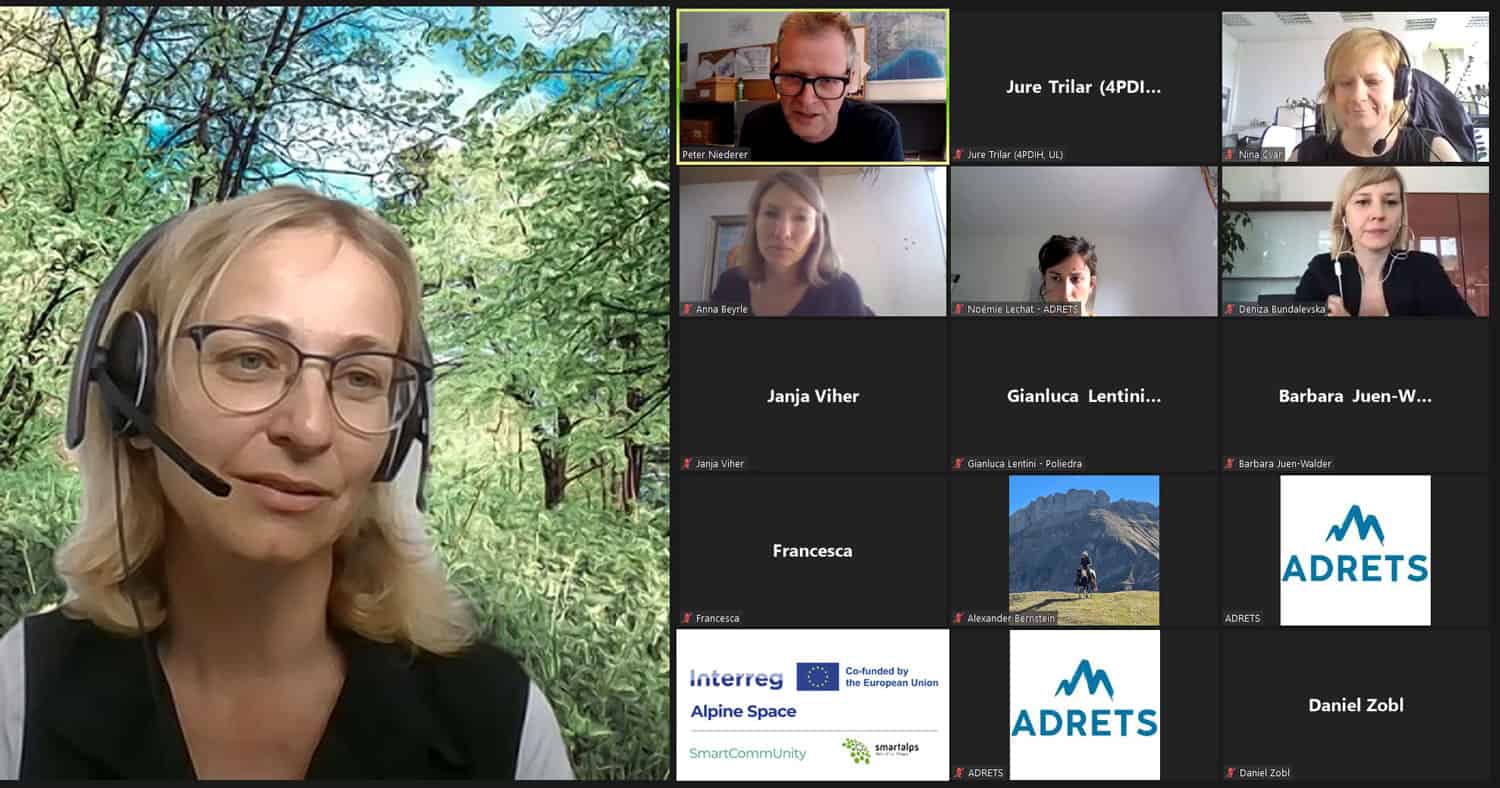On 28th of June, the first SmartAlps webinar took place. With participants, coming from different Alpine countries, the webinar addressed the issues and challenges of how to develop a smart community. In this regard, the webinar was divided into 5 sections: with introduction to the SmartAlps network, which was provided by Peter Niederer from SAB (Schweizerische Arbeitsgemeinschaft für die Berggebiete). The presentation of the specifics of the SmartAlps network was followed by Gianluca Lentini from Poliedra Milano, who introduced the participants the Smart Community definition/approach.
Because the webinar was co-organized in cooperation with the SmartCommUnity project, which aspires to work with communities not in abstract, but in concrete ways, taking into account concrete needs of the people living in alpine areas, the word was given to Janja Viher from the Kungota Municipality, who presented Kungota Smart Village as a best practice, in particular, how they work with the communities and their stakeholders.
Viher’ s presentation was taken as a starting point for the “practical session” of the webinar, where participants were divided into two Zoom breakout rooms, based on their language origin.
The breakout rooms served as a platform for discussing of how to successfully build smart communities, taking into account Viher’s presentation, which proposed future steps as well:
- Policy responses with building network capacity
- Technical assistance with digital training, skill training
- Financial assistance
- Development & Research for innovative solution and Smart solution
- Promote sustainable tourism
Besides testing the proposed SmartCommUnity definition, perhaps one of the most important contribution of the webinar was, that no matter the origin of the communities, they all share similar challenges, i.e. of how to involve different communities and stakeholders to work for the common goals, creating an atmosphere of trust and how to foster the type of governance which will enhance overall cooperation. In this manner, participants agreed, that such events are key in developing smart and sustainable digital transformation in rural areas.
You can find additional documents from the SmartAlps webinar here:



